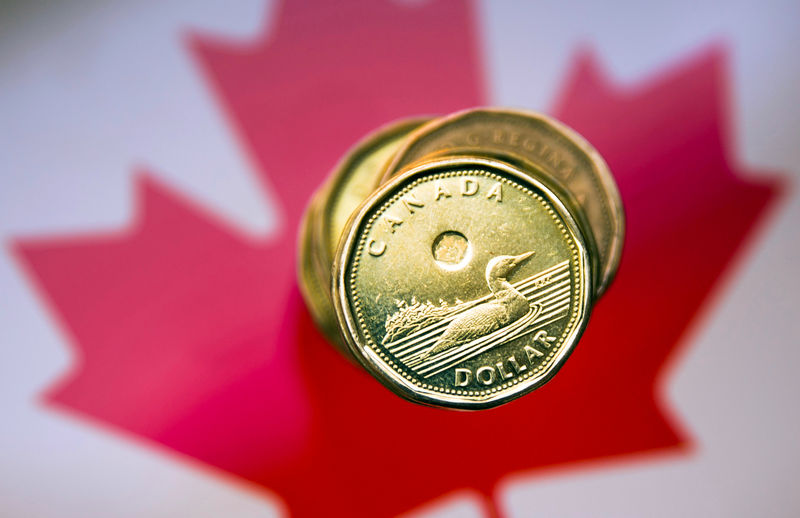Who is Kevin Hassett? Wolfe looks at the Trump ally tipped to become Fed Chair.
By Fergal Smith
TORONTO (Reuters) - Canada's dollar is likely to rally over the coming months, according to foreign exchange strategists in a Reuters poll, who forecast that trade uncertainty will fade and the Bank of Canada will continue to raise interest rates.
The latest poll of more than 35 market strategists taken Sept 1-4 predicted the Canadian dollar would rally to C$1.30 against the U.S. dollar, or about 77 U.S. cents, in three months, from nearly a seven-week low of C$1.32 on Tuesday.
The currency, which has weakened nearly 5 percent this year, is expected to reverse that trend and climb to C$1.26 in a year, matching the forecast of the August poll.
"At the end of the day we expect Canada to acquiesce to a trade deal, so that does remove some level of uncertainty," said Mazen Issa, a senior FX strategist at TD Securities. "The problem, however, is timing."
The loonie hit a nearly seven-week low on Tuesday at C$1.3208 after Canada and the United States ended talks last week to revamp the North American Free Trade Agreement without reaching a deal. Canadian officials are due to resume talks with their U.S. counterparts on Wednesday.
Canada sends about 75 percent of its exports to the United States, so the economy is likely to suffer if a deal is not reached.
The Bank of Canada, which has worried that trade uncertainty will hold back business investment, will wait at least until October before raising interest rates again, according to a separate Reuters poll taken late last week.
The central bank has raised rates four times since July 2017, taking its policy rate to 1.50 percent from 0.50 percent.
"We are generally constructive on commodity prices and we do expect the Bank of Canada to tighten rates a little bit more relative to the (U.S.) Fed over the next 12 months," said Shaun Osborne, chief currency strategist at Scotiabank. "Those two things, we think, should combine to give the CAD a bit of support, at least over that sort of time frame."
The price of oil (CLc1), one of Canada's major exports, has rallied more than 15 percent this year. But industrial metals have been pressured by a trade dispute between the United States and China and investor worries that global growth will lose momentum.
Copper futures (HGc1) have fallen more than 20 percent since December.
Canada runs a current account deficit, so its economy depends on the global flow of capital.
Still, obstacles for the Canadian dollar, such as trade uncertainty, U.S. dollar strength and investor dislike of risk-sensitive currencies, could fade over time, said Erik Nelson, a currency strategist at Wells Fargo (NYSE:WFC).
"We think all three of those things are going to turn more favorable for the Canadian dollar in the six to 12 months or so," Nelson said.
(Other stories from the global foreign exchange poll:)
